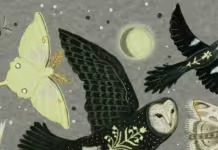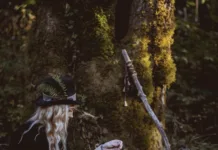Photography by Mike Shane with Sage Sovereign
The temperature has dropped, and you’ve taken out all your cozy sweaters. Each morning the edges of the leaves are rimed with frost. The grass crunches under your boots. Soon, any day now, snow will start falling in large, soft flakes, each one as different as a fingerprint.
It’s time to put the garden to sleep. In autumn, you gathered the large red hips of the wild roses and all the sour little crab apples not eaten by the birds. You turned them into jams and jellies that shine like rubies and garnets in the winter sunlight. Bundles of herbs are drying in your kitchen, hanging from the rafters—the air smells like lavender and sage and thyme.
You gathered in all the sweetness of summer. There are cut-glass bottles of sunlight in your pantry and skeins of fluffy white clouds in your knitting basket, waiting to be wound into balls so you can knit hats for two little girls who live down the street. You’re planning to make them with floppy ears, so Sofia and Svetlana will hear what the sky is saying. In the drawer of your work desk, you have small cardboard boxes, the kind used for matches, filled with the buzzing of bees, assorted birdsong, and the sound of water dripping down a rain pipe. There is no water dripping now—everything is already frozen, and when you step outside, your breath is a white mist on the cold air.
Cordelia the cat is curled by the fire—or Solomon the snake, or whatever kind of familiar you have to help with your potions and spells, because every witch needs a familiar. It could be a black poodle named Mephistopheles. Whatever-it-is says, in a sensible, sarcastic voice, “Aren’t you done preparing for winter yet?”
Because winter is here, and all the hopes of spring, the preparations of summer, the gathering in of autumn have come to this: The rows of tinctures and creams in your workshop. The notebook of new spells gathered from various magical conferences and the classes you taught on witchcraft at the local community college, where you are now an adjunct professor of magic (“Don’t let it get to your head,” says Cordelia or Solomon or Mephistopheles). The ideas for magical objects to create jotted down in almost illegible cursive:
A mirror that lets you see the happiest day of your childhood.
A tea that lets you get a full nine hours of sleep.
A soap that washes away sorrow.
There is still so much to do—final orders to fulfill from your Etsy business before you close up shop for the winter months, wood to stack in the woodshed, and of course the garden. It needs to be tucked in, just like a child. Before the snow comes, you will pull a blanket of oak leaves over it, to protect the roots of the rosebushes and the bulbs waiting under the ground. You imagine what they will look like in spring: first the snowdrops and grape hyacinths, then the daffodils, and then tulips, if the rabbits haven’t eaten them first—pink tulips shaped like trumpets and the dark purple variety called Queen of the Night. You still have things to do, lists to make, an attic that needs cleaning …
Seriously, stop. Winter is a time for resting and dreaming. Even your broom, which soared through the sky in autumn, carrying you to the moon or the farmers market, is yawning its bristles off. Sit down in your favorite chair, draw one of those cozy sweaters more closely around you, and make a final list, this time of everything you’re accomplished.
It’s been such a wonderful year. Like every year, it’s had its sorrows (which is why the world needs that soap) but also its joys. You’ve learned some things, like how to talk to the wolves in the local wildlife sanctuary—you’re not very good at wolf, but you’re getting better. You’ve practiced some other things, like drawing insects and butterflies. Witches need to understand the world, and what better way than by observing it closely and trying to capture it in colored pencils? Next spring, you’ll try watercolors. You’ve met some fascinating people, like the students in your classes and the witchy sisterhood at various conventions, including in Iceland, where you met—you’re pretty sure you met—an actual troll. You spent time with the librarian at your local library, the barista at the local coffee shop, and the neighborhood squirrels.
Look, Mephistopheles is tugging at your sweater … Seriously, aren’t you ready yet?
Finish your final chores. Check on the house ghosts and make sure they’re warm enough. Will they be comfortable up in the attic, among the boxes of clothes from your mother and grandmother, three generations of witches? Sometimes they like to come out and haunt you dressed as flappers from the 1920s. Do they need some blankets to cuddle under, or are their sheets enough? Do the toads and snails in the garden have winter homes? Has the fox that sometimes visits made herself a warm burrow? Do you have enough suet and seeds for the birds that are overwintering, the juncos and chickadees? Remember to put a heater in the birdbath so they have fresh water when the temperature drops below freezing. Check on the human inhabitants of your neighborhood: the Patels and Kowalskis; the Huang sisters, who are retired seamstresses and helped you so much with your Halloween costume; the Smiths and Khans and De La Rosas. Make sure old Mrs. Lollobrigida, who is almost eighty-five, has put in her storm windows. Being a witch doesn’t just mean knowing and making things—it means taking care, paying attention, remembering what other people forget, whether that’s a recipe for goulash or the needs of a widow living by herself.
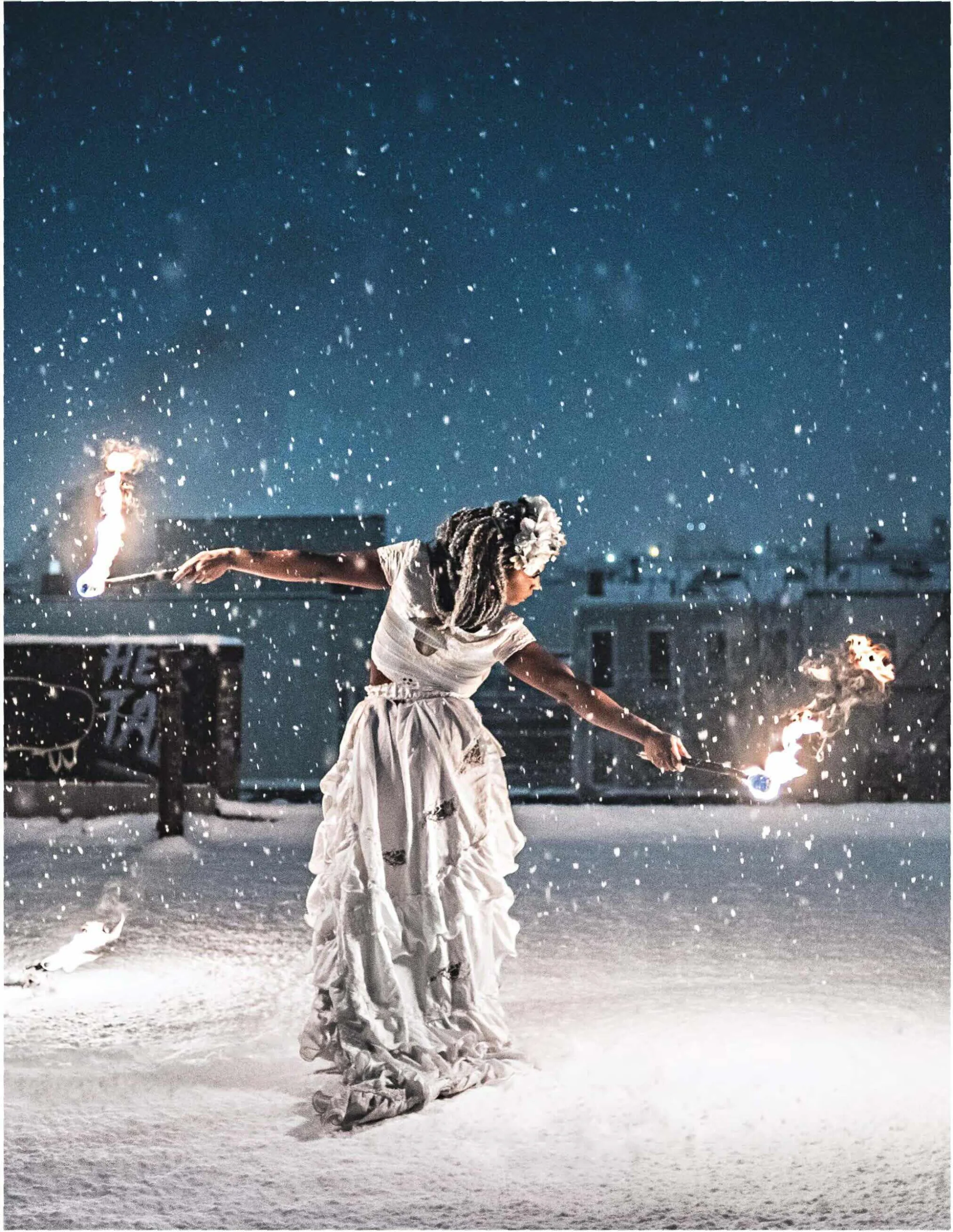
Say goodbye to the geese that are leaving for winter. “Are you sure you don’t want to come with us?” they will call. But you have a pile of wood for the fireplace, a warm chair to curl up in, and books waiting for you—not academic books, not for winter, but the many-colored fairy books by Andrew Lang, starting with The Blue Fairy Book. Maybe you’ll rewrite all the fairy tales with witches in them. Maybe in your version the witch will save Snow White from marrying a materialistic prince, help Rapunzel become an herbalist, or make a foster home for Hansel and Gretel in the woods. The fairy-tale writers didn’t really understand witches, who are fundamentally caretakers. A witch would have woken the Sleeping Beauty, made sure she brushed her teeth, and helped her with college applications. Also, she would have pruned those poor rosebushes.
Later, when the year turns, there will be a celebration of Yuletide, with pine boughs and holly wreaths and the Mediaeval Baebes on the CD player. You’ll invite all the neighbors over for hot cider and your favorite gingerbread, made with real chopped ginger. But right now, the house is quiet. The world outside is also quiet, and look—great fat flakes of snow have started to fall. There is a cup of chamomile tea by your elbow, and Solomon has curled around your ankle. He is snoring in his sleep.
It’s winter, a time for dreaming, whether with your eyes open or closed—for doing the interior work that does not get done during the more active parts of the year. Sit back, take a sip of tea, and rest now.
Theodora Goss is the World Fantasy, Locus, and Mythopoeic Award-winning author or editor of eleven books, including the short-story and poetry collections The Collected Enchantments and Snow White Learns Witchcraft, as well as her trilogy that began with The Strange Case of the Alchemist’s Daughter and ended with The Sinister Mystery of the Mesmerizing Girl. Follow her on Instagram @theodoragoss.
Find photographer Mike Shane’s work at mikeshanephotography.com. Follow Sage Sovereign on Instagram @sagesovereign or at sagesovereign.co







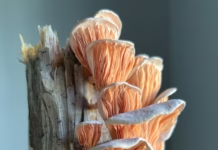
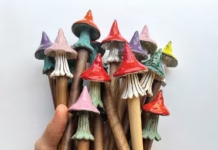

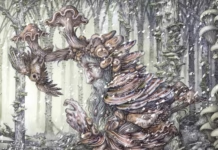
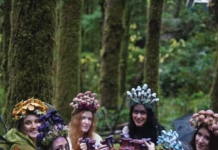
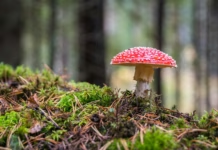
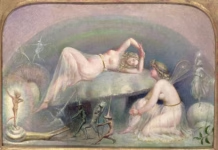
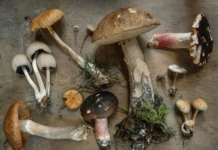
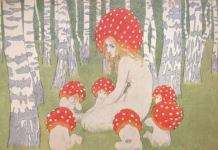
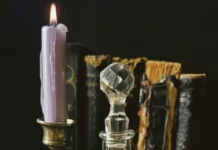

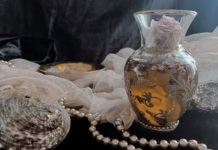





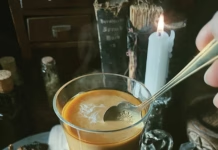
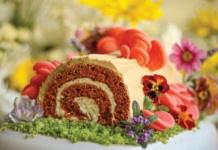
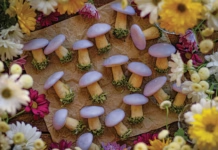
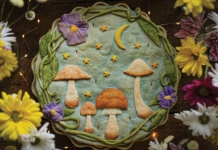
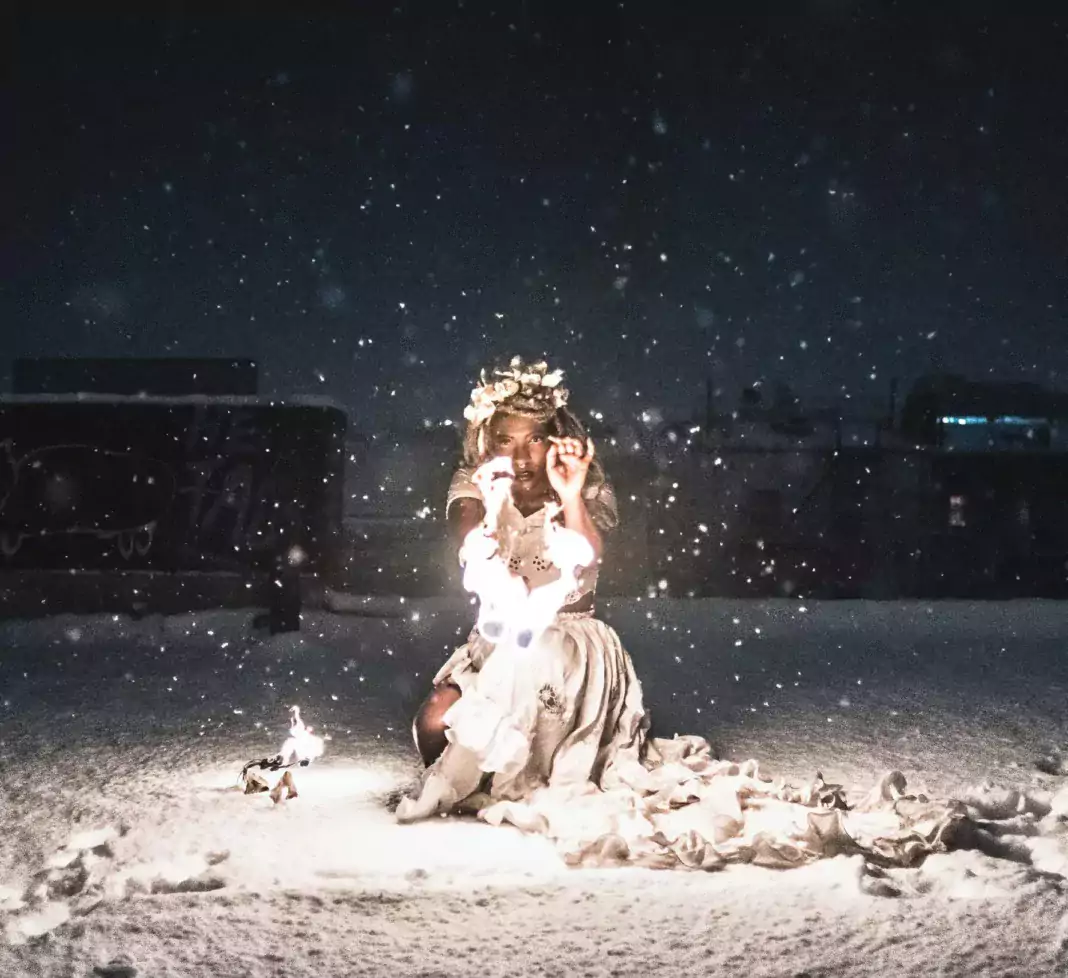
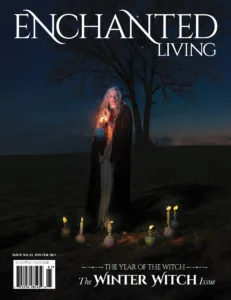 Enchanted Living is a quarterly print magazine that celebrates all things enchanted.
Enchanted Living is a quarterly print magazine that celebrates all things enchanted. 
